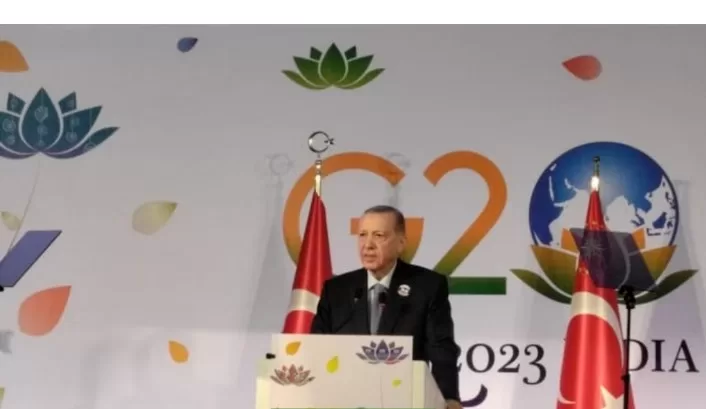**Headline:**
Istanbul-In the wake of the recent G20 Summit, Turkish President Recep Tayyip Erdogan has unequivocally affirmed Turkey’s pivotal position in the realm of global trade routes. With an unambiguous statement, he declared, “There can be no corridor without Turkey,” while emphasizing that “the most suitable conduit for trade spanning from the east to the west must inevitably traverse Turkish territories.”
Turkey is fervently engaged in intensive negotiations aimed at identifying an alternative to the India-Middle East trade corridor initiative, which received endorsement during the G20 gathering this month. The nation’s objective is to uphold its long-standing status as a substantial transit hub facilitating the passage of commodities from Asia to Europe.
The proposed India-Middle East trade route, designed to facilitate the transportation of goods from the Indian subcontinent to European markets via the United Arab Emirates, Saudi Arabia, Jordan, and Israel, has garnered no support from Turkey.
Foreign Minister Hakan Fidan expressed skepticism recently, asserting that “experts have raised doubts about the rationality and efficiency of the primary objectives of the India-Middle East corridor,” insinuating that “more geostrategic concerns may be in play.”
Turkey is resolute in underscoring its historical legacy as the intercontinental bridge between the east and the west, reminiscent of the famed Silk Road.
According to maps unveiled by the administration of Baghdad, the proposed $17 billion trade route would transport goods from the Grand Faw port in southern Iraq through ten Iraqi provinces before reaching Turkey.
Emre Peker, Europe director at the Eurasia Group think tank, voiced concerns regarding Turkey’s financing capabilities, opining that Turkey appears to rely on UAE and Qatari backing to construct the envisioned infrastructure. To garner such support, Gulf governments must be convinced of the project’s profitability, which remains a subject of scrutiny, particularly concerning the Development Road initiative.
Turkey’s vociferous assertion of its indispensable role in global trade networks introduces a new dimension to the ongoing discourse surrounding the India-Middle East corridor. As geopolitical considerations intertwine with economic interests, the future of trade routes in the region remains uncertain, with potential ramifications echoing across the global economic landscape.







